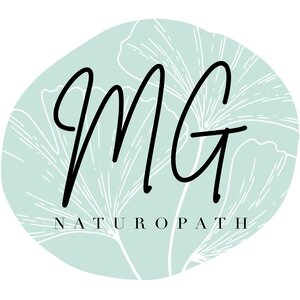This blog was inspired by NaturoBest’s blog - information shared from that resource which you can find here. We stock Naturobest products, please contact us if you need guidance on what would be best for you.
With the Coronavirus outbreak, many pregnant women have been asking me how they can safely boost their immunity during this time.
I have shared the most commonly prescribed immune-boosting nutrients and herbs recently in my newsletter and on The Naked Naturopath podcast. But, are they safe to take during pregnancy? Let’s go through them…
Vitamin A
This vitamin increases our resistance to infection, boosts antibody production and enhances function of the immune system. It’s found in egg yolk, full-fat dairy products, liver and fish liver oils. Too much however, can cause birth defects. For that reason, it’s not safe to eat liver or pate during pregnancy.
For supplementation, I love Dunaliella salina, a natural source of mixed carotenoids including beta-carotene. Supplementing with beta-carotene on its own may inhibit the absorption of lutein (another carotenoid) by up to 50%.
If you vegan or intolerant to eggs or dairy, it would be a good idea to speak to your natural health professional or book an appointment with me to investigate other sources/supplements.
Vitamin C
As most of us know, Vitamin C is necessary for a healthy immune system. Not only that, it helps us absorb iron which is essential during pregnancy.
The RDI during pregnancy is 60mg, although you can increase this dose to 2000mg daily during times of illness.
Vitamin D
Testing vitamin D prior to pregnancy and at the end of each trimester of pregnancy and supplement accordingly might be helpful. The reason for testing is that you may need more than the 1000iu commonly found in most prenatal vitamins.
Be careful with taking high doses though, as a fat-soluble vitamin, it may be toxic in excess.
The RDI during pregnancy is 200iu, however from experience, most women need much more than this.
Iron
One of the most important minerals during pregnancy, especially from 16 weeks when hemodilution kicks in (doubling of blood volume).
Iron deficiency can lead to dysfunction and disease including poor immune function so it’s important to get supplementation right. Testing is important here too.
If you are mildly deficient, then it’s a good idea to speak to your natural health professional or book an appointment with me about the appropriate dose for you. Even though the RDI is 27mg daily during pregnancy, you may need 100mg of elemental iron daily.
If you are trying for a baby and your ferritin (iron stores) are less than 30ug/L, speak to your doctor about an iron infusion. Otherwise, try to boost your stores to more than 80ug/L through supplementation prior to conception.
Good quality supplements are vital and I have one available in my online store here.
Zinc
Zinc is the most important mineral during the entire preconception, pregnancy and postnatal period. Involved in over 200 enzyme reactions in the body, zinc maintains a healthy immune system.
It is a common deficiency and even though the RDI during pregnancy is 11mg daily, most women will need a higher dose than that to correct their deficiency. Important as always to have a chat with your health professional rather than self-medicating with this!
Common Herbs Used for Immune Support:
Echinacea
There are some herbs that are contraindicated in pregnancy but echinacea is not one of them.
In clinic and from personal use, I find echinacea is most effective when used as a preventative medicine. Perhaps save this one for times when you are exposed to a higher risk of illness such as travelling or right now if you are having to work out in the community. Check with your medical professional.
Andrographis
NOT safe for pregnant women to use. Although it is highly effective as an anti-viral, I would advise against using it if you are trying to conceive or are pregnant.
If you are breastfeeding however and you start to feel the symptoms of a cold or virus, this is a great herb to use to nip it in the bud (along with high doses of vitamin C).
Garlic
Try crushing a garlic clove with the side of a large kitchen knife to release the oils. This releases allicin, the active constituent responsible for antimicrobial effects in the body. At the first sign of an illness, swallow the garlic clove whole and repeat a few times daily.
Elderberry
This one makes a great cough syrup! Elderberry and elderflowers are commonly prescribed for influenza, common colds and other acute viral infections. It’s certainly worth trying if you are unfortunate enough to contract Covid-19 during pregnancy.
Manuka honey
Manuka honey is anti-viral, anti-inflammatory and a great antioxidant! Make it part of your own immune-boosting plan.
Probiotics
The benefits of probiotics during pregnancy extend further than just the prevention of allergies and eczema. These are available in our online store too.
RECOMMENDATIONS FROM THE NATUROBEST RANGE
The Ultimate Multi & Antioxidant is the best supplement to take for boosting immunity at a dose of 4 capsules daily. With 50mg of elemental zinc, 200mg of vitamin C, 1000iu of vitamin D and 40mg of Dunaliella salina, it’s packed full of all the nutrients mentioned above.
However, if you are pregnant, Prenatal Trimester 2 & 3 Plus Breastfeeding contains all the nutrients mentioned above with the addition of iron for extra immune protection.
Of course, online consults with me are the best way to navigate this and ensure you are getting the right herbs and supplements for your condition! Book here.
